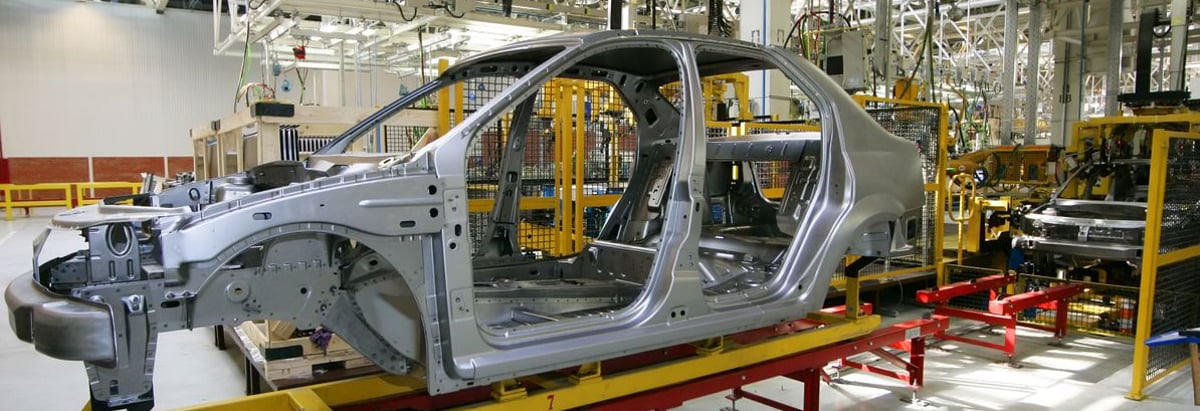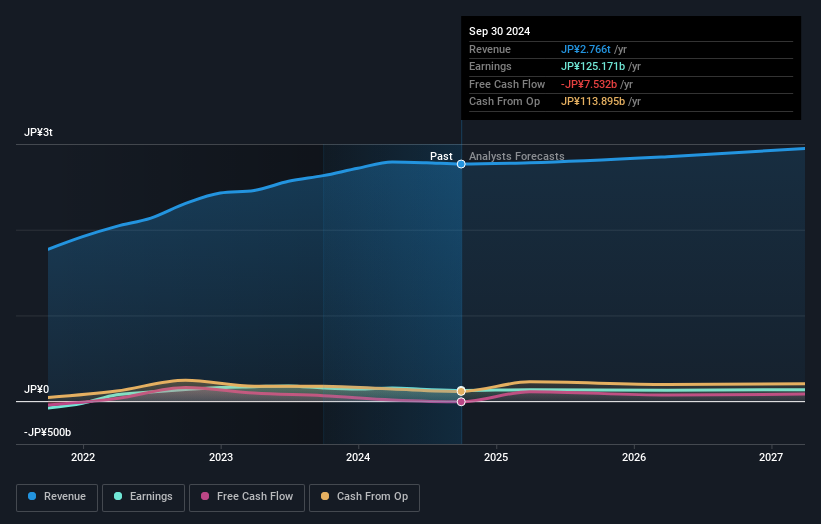Public companies among Mitsubishi Motors Corporation's (TSE:7211) largest shareholders, saw gain in holdings value after stock jumped 29% last week

Key Insights
- Significant control over Mitsubishi Motors by public companies implies that the general public has more power to influence management and governance-related decisions
- 51% of the business is held by the top 6 shareholders
- 13% of Mitsubishi Motors is held by Institutions
To get a sense of who is truly in control of Mitsubishi Motors Corporation (TSE:7211), it is important to understand the ownership structure of the business. We can see that public companies own the lion's share in the company with 48% ownership. That is, the group stands to benefit the most if the stock rises (or lose the most if there is a downturn).
As a result, public companies collectively scored the highest last week as the company hit JP¥783b market cap following a 29% gain in the stock.
Let's take a closer look to see what the different types of shareholders can tell us about Mitsubishi Motors.
See our latest analysis for Mitsubishi Motors

What Does The Institutional Ownership Tell Us About Mitsubishi Motors?
Many institutions measure their performance against an index that approximates the local market. So they usually pay more attention to companies that are included in major indices.
We can see that Mitsubishi Motors does have institutional investors; and they hold a good portion of the company's stock. This can indicate that the company has a certain degree of credibility in the investment community. However, it is best to be wary of relying on the supposed validation that comes with institutional investors. They too, get it wrong sometimes. It is not uncommon to see a big share price drop if two large institutional investors try to sell out of a stock at the same time. So it is worth checking the past earnings trajectory of Mitsubishi Motors, (below). Of course, keep in mind that there are other factors to consider, too.

Mitsubishi Motors is not owned by hedge funds. The company's largest shareholder is Nissan Motor Co., Ltd., with ownership of 24%. Mitsubishi Corporation is the second largest shareholder owning 20% of common stock, and Mitsubishi UFJ Financial Group, Inc. holds about 2.1% of the company stock.
On further inspection, we found that more than half the company's shares are owned by the top 6 shareholders, suggesting that the interests of the larger shareholders are balanced out to an extent by the smaller ones.
While it makes sense to study institutional ownership data for a company, it also makes sense to study analyst sentiments to know which way the wind is blowing. Quite a few analysts cover the stock, so you could look into forecast growth quite easily.
Insider Ownership Of Mitsubishi Motors
The definition of company insiders can be subjective and does vary between jurisdictions. Our data reflects individual insiders, capturing board members at the very least. Management ultimately answers to the board. However, it is not uncommon for managers to be executive board members, especially if they are a founder or the CEO.
I generally consider insider ownership to be a good thing. However, on some occasions it makes it more difficult for other shareholders to hold the board accountable for decisions.
Our information suggests that Mitsubishi Motors Corporation insiders own under 1% of the company. Keep in mind that it's a big company, and the insiders own JP¥188m worth of shares. The absolute value might be more important than the proportional share. Arguably, recent buying and selling is just as important to consider. You can click here to see if insiders have been buying or selling.
General Public Ownership
The general public-- including retail investors -- own 39% stake in the company, and hence can't easily be ignored. This size of ownership, while considerable, may not be enough to change company policy if the decision is not in sync with other large shareholders.
Public Company Ownership
Public companies currently own 48% of Mitsubishi Motors stock. This may be a strategic interest and the two companies may have related business interests. It could be that they have de-merged. This holding is probably worth investigating further.
Next Steps:
I find it very interesting to look at who exactly owns a company. But to truly gain insight, we need to consider other information, too. Case in point: We've spotted 2 warning signs for Mitsubishi Motors you should be aware of, and 1 of them is concerning.
If you would prefer discover what analysts are predicting in terms of future growth, do not miss this free report on analyst forecasts.
NB: Figures in this article are calculated using data from the last twelve months, which refer to the 12-month period ending on the last date of the month the financial statement is dated. This may not be consistent with full year annual report figures.
New: Manage All Your Stock Portfolios in One Place
We've created the ultimate portfolio companion for stock investors, and it's free.
• Connect an unlimited number of Portfolios and see your total in one currency
• Be alerted to new Warning Signs or Risks via email or mobile
• Track the Fair Value of your stocks
Have feedback on this article? Concerned about the content? Get in touch with us directly. Alternatively, email editorial-team (at) simplywallst.com.
This article by Simply Wall St is general in nature. We provide commentary based on historical data and analyst forecasts only using an unbiased methodology and our articles are not intended to be financial advice. It does not constitute a recommendation to buy or sell any stock, and does not take account of your objectives, or your financial situation. We aim to bring you long-term focused analysis driven by fundamental data. Note that our analysis may not factor in the latest price-sensitive company announcements or qualitative material. Simply Wall St has no position in any stocks mentioned.
About TSE:7211
Mitsubishi Motors
Engages in the development, production, and sale of passenger vehicles, and its parts and components in Japan, Europe, North America, Oceania, the rest of Asia, and internationally.
Undervalued with excellent balance sheet.
Similar Companies
Market Insights
Community Narratives



